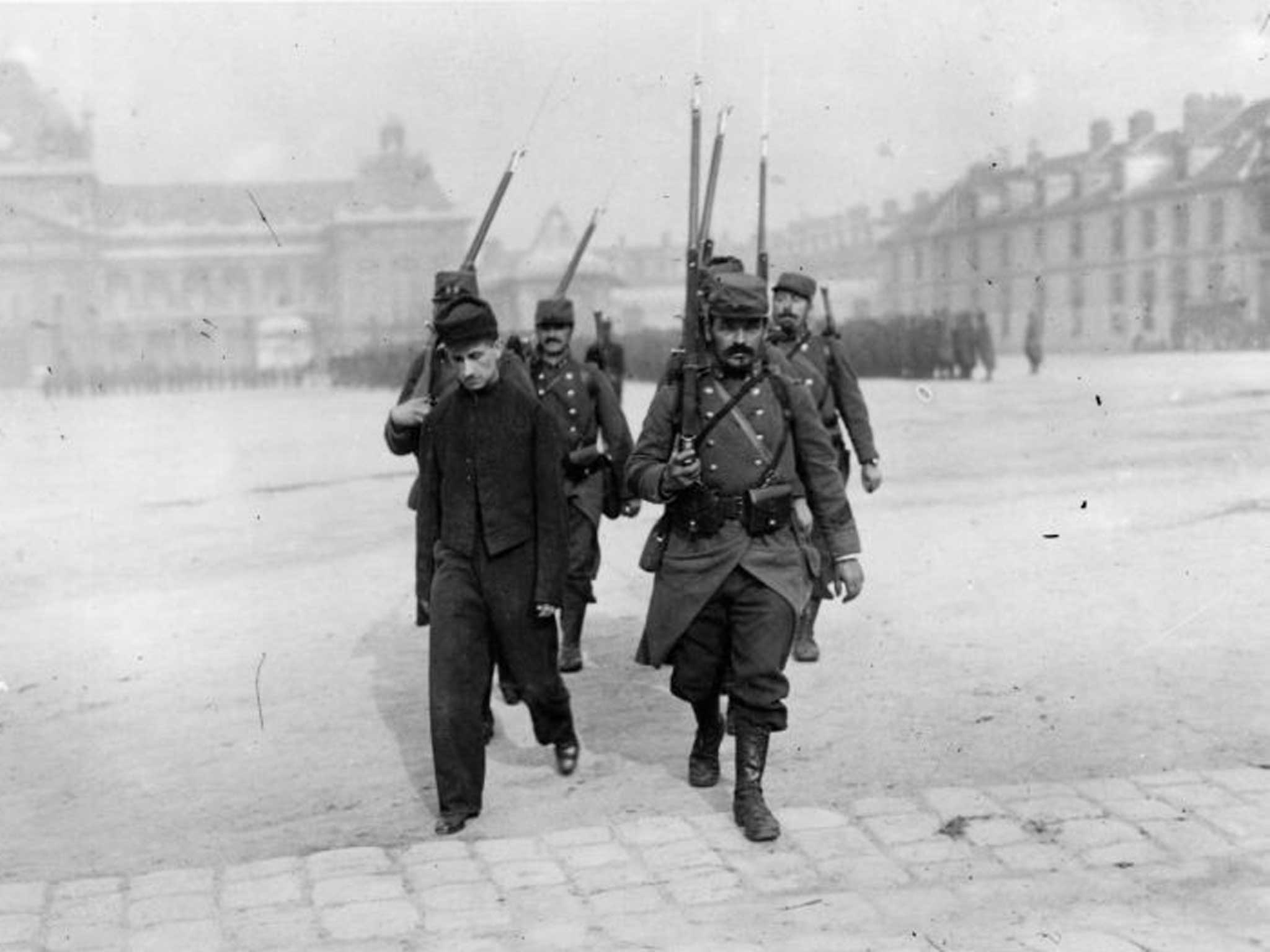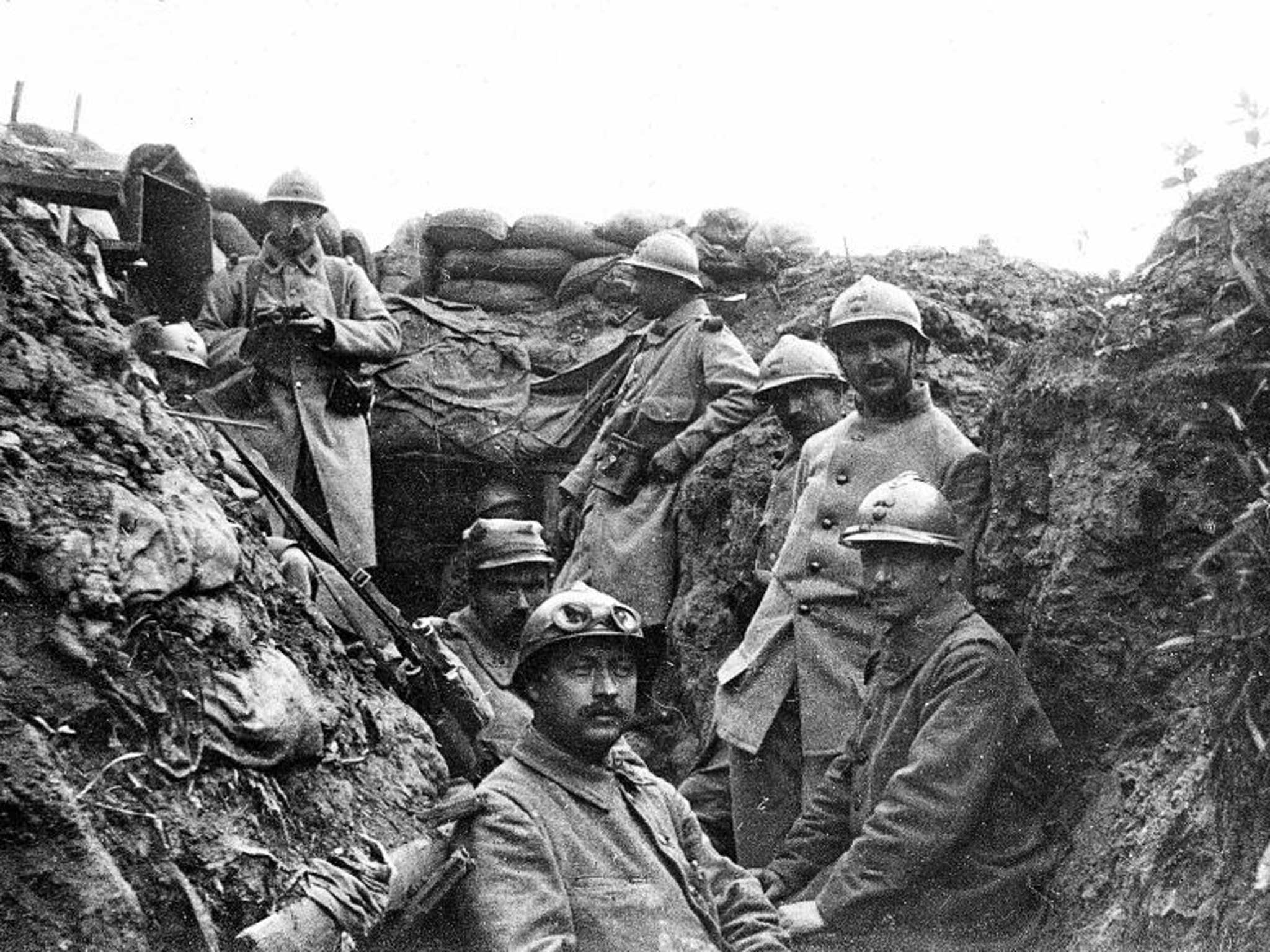A History of the First World War in 100 Moments: The French general and the deserter
Even early in the war, desertion was punishable by death. Edward Spears, a British liaison officer, saw the macabre spectacle of an execution

Your support helps us to tell the story
From reproductive rights to climate change to Big Tech, The Independent is on the ground when the story is developing. Whether it's investigating the financials of Elon Musk's pro-Trump PAC or producing our latest documentary, 'The A Word', which shines a light on the American women fighting for reproductive rights, we know how important it is to parse out the facts from the messaging.
At such a critical moment in US history, we need reporters on the ground. Your donation allows us to keep sending journalists to speak to both sides of the story.
The Independent is trusted by Americans across the entire political spectrum. And unlike many other quality news outlets, we choose not to lock Americans out of our reporting and analysis with paywalls. We believe quality journalism should be available to everyone, paid for by those who can afford it.
Your support makes all the difference."General de Maud'huy had just been roused from sleep on the straw of a shed and was standing in the street when a little group of unmistakeable purport came round the corner. Twelve soldiers and an NCO, a firing party, a couple of gendarmes, and between them an unarmed soldier. My heart sank and a feeling of horror overcame me. General de Maud'huy gave a look, then held up his hand so that the party halted, and with his characteristic quick step went up to the doomed man.
"He asked what he had been condemned for. It was for abandoning his post. The General then began to talk to the man. Quite simply, he explained discipline to him. Abandoning your post was letting down your pals; more, it was letting down your country that looked to you to defend her. He spoke of the necessity of example, how some could do their duty without prompting but others, less strong, had to know and understand the supreme cost of failure. He told the condemned man that his crime was not venial, not low, and that he must die as an example, so that others should not fail. Surprisingly, the wretch agreed, nodding his head. He saw a glimmer of something, redemption in his own eyes, a real hope, though he knew he was about to die. Maud'huy went on, carrying the man with him to comprehension that any sacrifice was worthwhile while it helped France ever so little. What did anything matter if he knew this?

"Finally, de Maud'huy held out his hand: 'Yours also is a way of dying for France,' he said. The procession started again, but now the victim was a willing one. The sound of a volley announced that all was over. The general wiped the beads of perspiration from his brow, and for the first time perhaps his hand trembled as he lit his pipe."
First published in 'Liaison 1914', by Sir Edward Louis Spears (Heinemann, 1930)
Tomorrow: Machine guns on the Eastern front. The series continues in Monday's 'Independent'. 'Moments' already published can be seen at: independent.co.uk/greatwar
Join our commenting forum
Join thought-provoking conversations, follow other Independent readers and see their replies
Comments